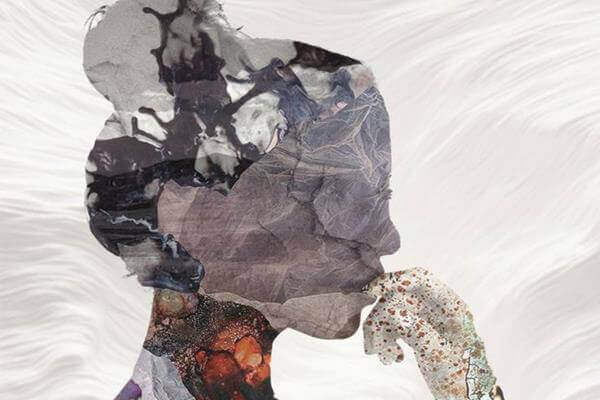You may have recently heard of investigating the biological components of different mental health problems, from studying the genes responsible for all existing mental disorders to the brain areas or neurotransmitters involved; however, given the complexity of the human being, biology cannot explain everything so we are trying to find, from the point of view of clinical psychology, different psychological markers that, in the case of obsessive compulsive disorder (ODO), would have a great influence on its development.
For this reason, this article is based on research conducted by the Spanish Association of Psychopathology and Clinical Psychology on obsessive-compulsive disorder and its psychological markers, in particular Gertrude Forné, D. Did Angels Ruiz-Fernndez and Amparo Belloch find that the feeling of unsovernability businesses and experiences?may have obsessive-compulsive symptoms.
- Based on the results of the research published in the article entitled:?Do you feel unfinished and experienced? Not alone? As motivators of obsessive-compulsive symptoms ?.
- Let’s treat this disorder.
- Because as with all mental disorders.
- Biology is not only decisive.
- That is.
- The drug alone is not enough for its proper treatment.
To explain the psychological markers of obsessive-compulsive disorder, it is important to first know what it is, so this disorder was previously part of the different diagnostic classifications of anxiety disorders, but the evolution of knowledge about this disease made it in The Latest Update of the Diagnostic and Statistical Manual of Mental Disorders, known as DSM-5, it received the classification of its own entity.
People with this disorder have important obsessions that include images, thoughts, or recurrent impulses that cause anxiety. Anxiety that they try to alleviate through repetitive behaviors or mental acts. An example of this would be a person obsessed with thinking that you can get sick because there are many germs in the environment and constantly wash your hands when you touch something, even being able to leave your hands in living flesh when rubbing and washing. so often, often.
Usually, these compulsive rituals cause discomfort in the individual who performs them and wastes them for a long time, in addition, if at some point in his life the person has recognized that these obsessions and / or compulsions are excessive and even irrational, he does not see himself able to stop them.
From a cognitive behavioral point of view in psychology, which has the greatest empirical support in the treatment of obsessive-compulsive disorder, it is customary to emphasize the importance of dysfunctional beliefs and the prevention of suffering as a fundamental explanation of the genesis of the disorder. But this explanation was limited in relation to the heterogeneity of patients’ dysfunctional beliefs about their symptoms and the need for compulsions.
Because of this limitation, several researchers around the world have begun to consider other psychological factors as specific diagnostic characteristics of obsessive-compulsive disorder and concluded that the feeling of being unfinished is present exclusively in obsessive-compulsive disorder, compared to other anxiety disorders.
The feeling of unfinished business refers to the persistent feeling that the task at hand is incomplete, so that it extends over time by the meticulousness with which it develops and occupies most of the person’s thinking when it comes to finding what is still missing and what could not be found.
Besides, the researchers also suggested that he? That’s not fair?It would be a focal point of this mess, these experiences are the ones that make you think that what you achieved is not good enough to stay as it is, therefore this will lead the person to constantly repeat every step to make sure that they have not forgotten anything and thus try to achieve impossible perfection.
As we see, different researchers have conceptualized these behaviors as compulsive repetition and mental obsession, going further in explaining the heterogeneity of this disorder.
In connection with these findings, Gertrudis Forné, D. Angeles Ruiz-Fern-ndez and Amparo Belloch decided to conduct a study in Spain on these concepts in an attempt to reproduce the results, for which they used the following instruments: Not Just Revised Questionnaire of Correct Experiences (NJREQ-R) and Vancouver Obsessive-Compulsive Inventory (VOCI).
The results obtained tell us that both unfinished experiences and feelings are present in the general population, but to a greater extent in the population with obsessive-compulsive disorder, which would indicate that these experiences could be considered a factor/marker of vulnerability. to develop symptoms of this disorder.
Isn’t that fair?are more “internal,” subjective and fuzzy than intrusion and general discomfort. In addition, such experiences occur when the patient “does something”, while obsessive content arises in many cases whether or not the patient performs an action.
Associations were also found between? And unfinished feeling prone to perfectionism and intolerance to uncertainty. This point could help outline a more improved future intervention related to this type of thinking for this disorder.
Besides, the experiments, not just, the feeling of unfinished issues and symptoms?They predict all dimensions of obsessive-compulsive symptoms, beyond the explanatory weight that perfectionism, intolerance to uncertainty, dysfunctional beliefs, tendency to pathological anxiety, and symptoms of anxiety and depression can bring. A notable exception is order symptoms, in which anxiety was the most important factor.
All these results lead us to conclude that much remains to be discovered about obsessive-compulsive disorder. These results also demonstrate the importance of psychological factors in the genesis, evolution and treatment of different mental illnesses.

